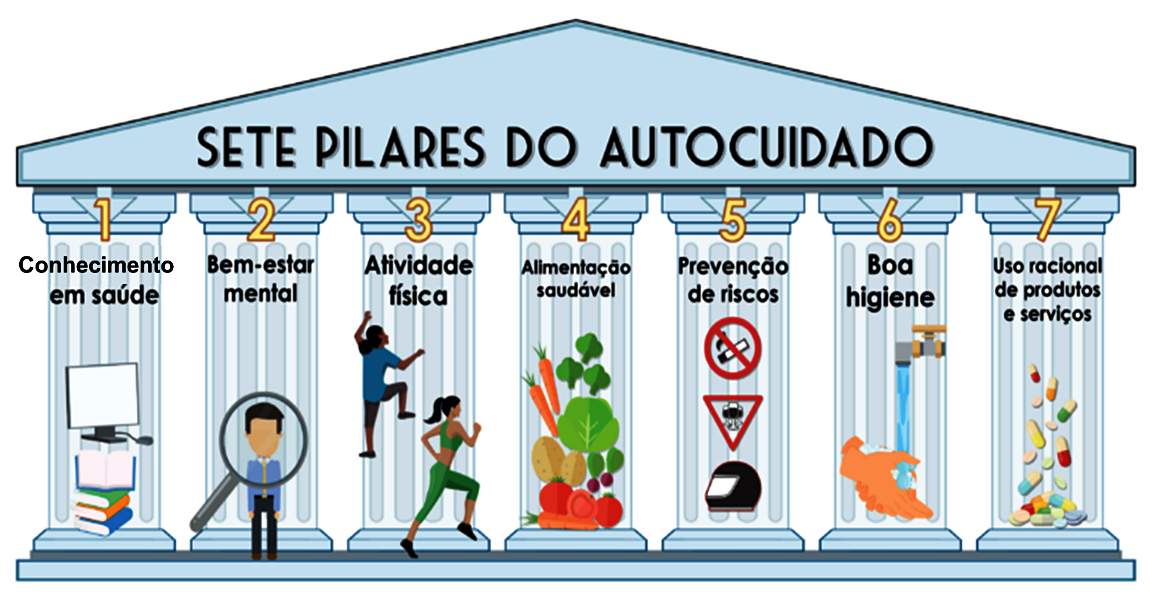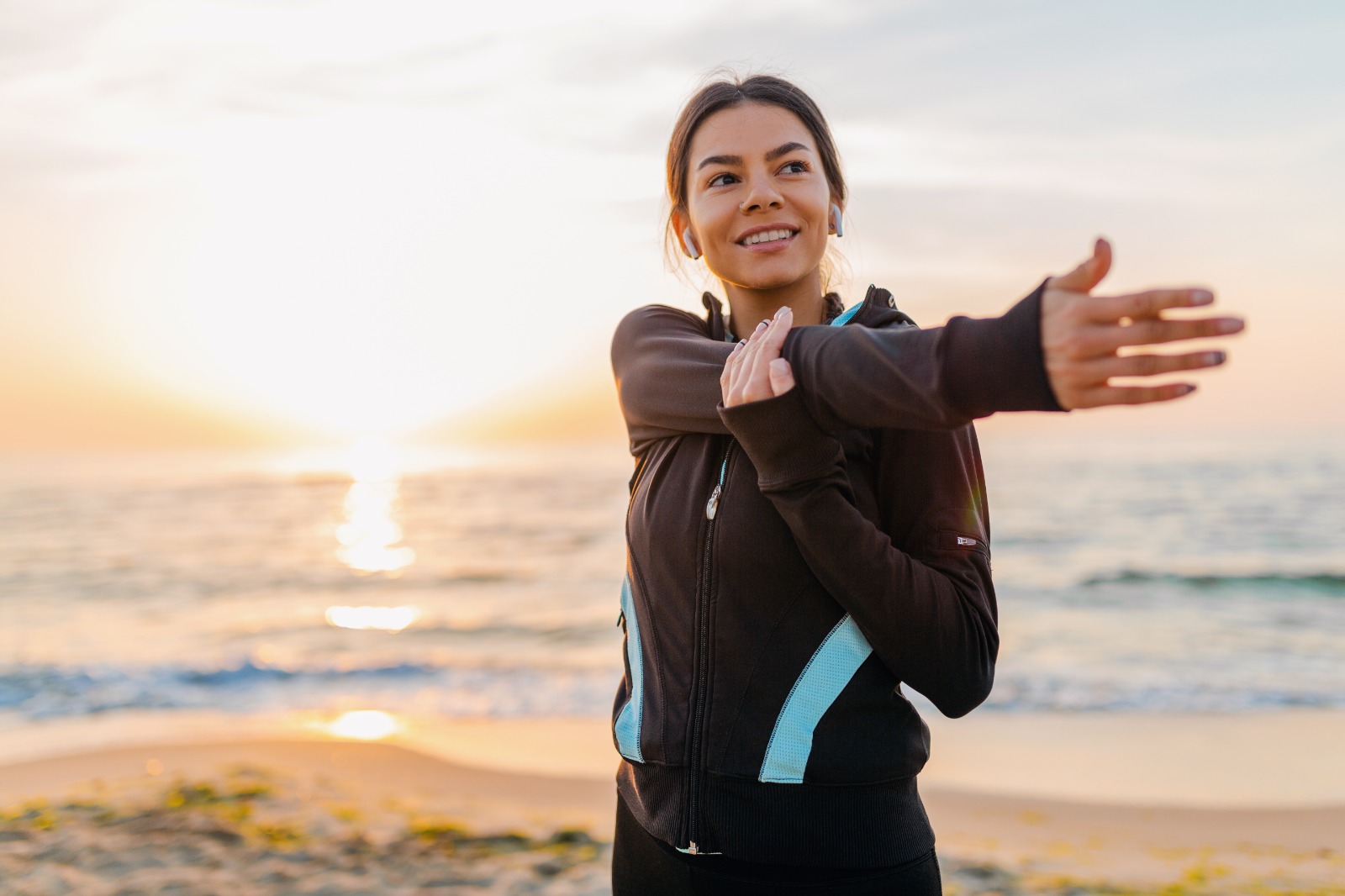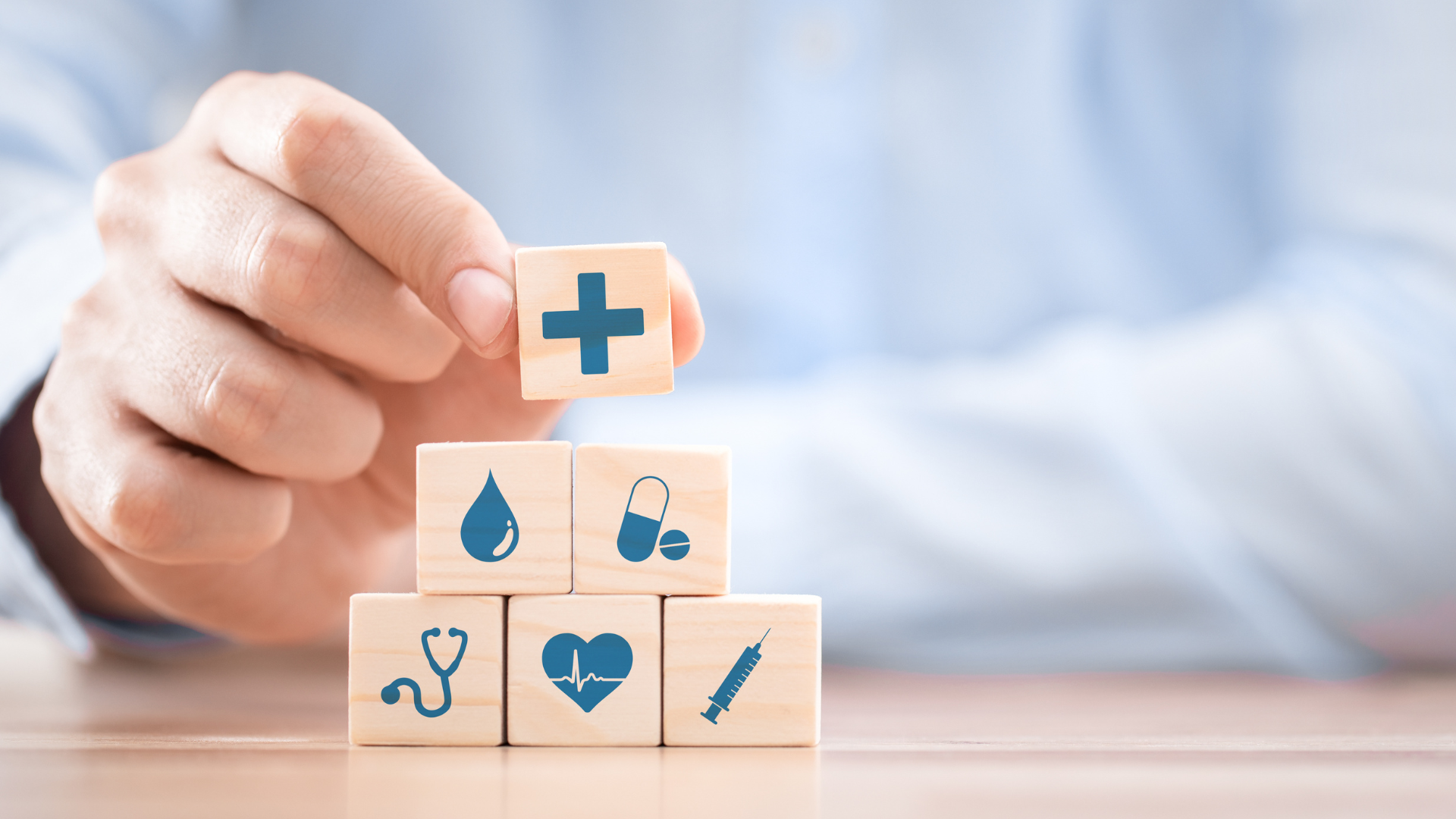For every R$1 invested in self-care through over-the-counter (OTC) medications, up to R$7 could return to the healthcare system if the practice were encouraged in Brazil – at least that is what states a study by the Brazilian Association of the Self-Care Products Industry (ACESSA), published in 2017 in the Brazilian Journal of Health Economics (JBES).
Although old and with some limitations, the study anticipated the importance of strategies to help ease the costs of the Unified Health System (SUS) and mortality rates from preventable deaths – which, with the Covid-19 pandemic, reached a new peak, further pressuring the healthcare sector.
At that time, self-care became the path for those who feared becoming another victim of the various extreme situations caused by the health crisis. However, the current popularity of the term is still often associated with wearing comfortable clothes, multi-step skincare routines, and other products from the beauty and entertainment markets.
However, the World Health Organization (WHO) defines self-care as “the ability of individuals, families, and communities to promote health.” In other words, it is about encouraging practices to prevent diseases, maintain health, and manage illnesses, with or without the support of a health professional. In an attempt to promote the term, the entity established in 2011 that July 24 is the “International Self-Care Day.” The choice of the date is a play on the term “24/7,” based on the idea that taking care of oneself should be a daily priority – that is, 24 hours a day, 7 days a week.
To develop self-care strategies, WHO establishes seven main pillars:

More than a symbolic date, self-care represents a concrete strategy to ease the burden on healthcare systems. “Self-care is a way – perhaps the only one – to step on the gas to balance healthcare costs,” explains César Bentim, a former IQVIA advertiser, consultant specialized in the health segment, and founder of ARTEGIST Healthcare Consulting. WHO reinforces this reasoning by highlighting that effective self-care strategies can expand access to health services, reduce inequalities, and ease the overload of national systems.
In this sense, one of the pressure factors on the sector is the fact that 60% of Brazilians only go to the doctor when they have symptoms and severe clinical conditions, as shown by a survey by the Bradesco Seguros Group. This happens because “for a large part of the population – not only in Brazil but worldwide – health is seen as the absence of disease,” the consultant explains.
Bentim continues, clarifying that “in fact, health is a state of mental, physical, and even spiritual wholeness that people enjoy from the day they are born until they face some kind of issue that requires intervention – not self-suggestive, but professional help.”
Change of habit
WHO estimates that 71% of all deaths worldwide are due to Non-Communicable Chronic Diseases (NCDs). Specifically in Brazil, it is estimated that about 1.8 million people are hospitalized annually in the SUS due to these conditions. This group includes conditions such as diabetes, cardiovascular diseases, cancers, chronic respiratory diseases, and obesity – which, although they may have genetic influence, are still more associated with unhealthy habits.
However, the Covid-19 pandemic may have been the starting point for a change in habits. In July 2020, Veja Saúde magazine and the Brazilian Association of Over-the-Counter Medicines (ABIMIP) joined forces to interview 1,874 individuals (70% women and 30% men) for the study “Self-Care in Times of Pandemic”. Among the findings, the following stand out:
- 69% of people began to reassess habits related to health;
- 38% became more concerned with mental well-being;
- 30% started to take better care of their overall health;
- 29% began to eat better;
- 14% started exercising more;
- 13% began sleeping better;
- 7% reduced alcohol consumption;
- 1% quit smoking.
In this sense, it is worth noting that the time of the survey was only the beginning of the health crisis and social isolation – which lasted until May 2023 and May 2022, respectively.
Even so, healthy habits currently seem to be gaining strength. As an example, it is worth highlighting the rise of physical activity and sports. According to the annual Sports Trends report from the Strava app, running was the most practiced sport in the world in 2024. Specifically in Brazil, there were more than 19 million runners, making the country the second largest in number of athletes. The phenomenon also drove a 29% increase in the number of street running events in Brazil.
Along with this, a survey by Datafolha, published in March 2025, showed that 53% of Brazilians say they have reduced their alcohol consumption. The reasons for this behavioral change vary, but 34% say they stopped due to health concerns.
However, for interest in health-related self-care to continue growing, technologies, products, and public policies focused on it need to gain more momentum.
Strategies to promote self-care
There are several paths to help promote healthy practices. However, initial priorities include: access to quality information, monitoring tools, professional guidance, and continuity of care.
As an example, a standout public policy is the “Saúde na Hora” program, implemented in 2019 with the goal of extending the opening hours of Basic Health Units (UBS) to facilitate access to primary care.
In addition, there is the issue of health literacy. According to research by the Oswaldo Cruz Foundation (Fiocruz), the level of health literacy — that is, the ability to understand and apply health information — is considered inadequate for about 70% of the adult Brazilian population, making it difficult to safely and effectively adopt self-care practices.
According to César Bentim, this is still an underexplored area by major brands and the private sector as a whole. The advertiser argues that several brands – from pharmaceutical to food – have room to strengthen their communication channels and help educate the population on various topics.
Additionally, we have over-the-counter (OTC) medications, which stand out as a key tool when it comes to health-related self-care. Although there is still resistance regarding their proper use, the practice is already part of the daily reality of many Brazilians. According to a Datafolha survey, 86% of the population keeps OTCs at home to relieve symptoms like fever, pain, or heartburn; and 73% use these medications because they consider them a necessity.
“The woman who went to the pharmacy, bought the right medicine for the cramps she has every month, and went to work is one less person at the hospital. That counts in the absenteeism balance, and that is why OTCs should be seen as a public health tool and not just a shelf product,” says Bentim. He argues, however, that the use of these medications should always be linked to technical guidance and consumer education. “That phrase ‘if symptoms persist, a doctor should be consulted’ must be kept in any communication. It’s not about irresponsible self-medication, but autonomy based on information,” he reiterates.
In this regard, the former IQVIA advertiser also highlights the importance of not overburdening the individual with full responsibility for their own health without the system providing minimum conditions for them to care for themselves. “At the end of the day, the cost [regarding one’s own health] is on the individual. But what if this person doesn’t have access to information, doctors, gyms, and healthy food? It is necessary to institutionalize self-care to generate real impact.”
Project to encourage exercise
To think of other ways to promote health, we spoke with Dr. Samir Daher, a physician specialized in exercise and sports medicine, who created the Vincero Method – applied in the Health Promotion Program of the Instituto de Assistência Médica ao Servidor Público Estadual de São Paulo (IAMSPE) and at Clube Pinheiros.
Several years ago, Daher created what is now called the Vincero Method (name inspired by the Italian opera “Alba Vincero,” meaning “to win”). Vincero is both his company and the methodology applied in the Health Promotion Program implemented at IAMSPE and Clube Pinheiros. The method includes online screening for risk factors, health education, and a six-week supervised exercise program with a minimum frequency of twice per week — enough time for participants to feel physical and mental improvement and gain autonomy to continue after the period.
To prove the importance of the method, Daher conducted his first systematic study in 2007 to understand the impact of physical activity on both people’s health and the healthcare system. At the time, he invited 100 sedentary elderly individuals — 50 of whom were included in a supervised physical activity program for one year, while the other 50 remained sedentary by choice. In the end, the group that did the exercises showed significantly better health indicators, with fewer hospitalizations, emergency visits, and medical interventions.
The study concluded that “for every dollar invested in prevention, three dollars are saved,” which would represent a significant economic impact for IAMSPE. Thus, in 2012, the institution’s board adopted the model on a large scale until it was consolidated and implemented throughout the network.
In practice, participation in the program led to:
- pain reduction;
- improved mobility;
- lower anxiety levels;
- and even changes in eating habits.
Furthermore, the original study showed savings in the healthcare system due to reduced hospitalizations, surgeries, and emergency visits.
The impact was seen especially for conditions such as obesity, diabetes, and osteoarthritis, as about 40% of patients improved and delayed surgery. In cases such as breast cancer, for example, there was a reduction in symptoms associated with depression and low immunity.
Based on these results, the program was a finalist for an award by Veja Saúde magazine and began to be replicated in other contexts: in companies (to reduce absenteeism and health insurance claims) and at Clube Pinheiros, where screening now reaches 2,000 athletes, including youth (aged 12 to 15) and Olympic athletes.
Through Vincero’s multidisciplinary approach – which brings together psychology, nutrition, physiotherapy, and medicine – the program self-reported savings of 3 dollars for every 1 dollar invested. Thus, the figures reinforce the public health impact of delivering information and supervised physical activity.
The health self-care market
Finally, it can be said that there is still a lot of room to develop health-related self-care solutions. In the words of the ARTEGIST health consultant: “Here is a segment full of pain. People eat poorly, sleep poorly, and don’t exercise.”
Although there are opportunities for more public policies and technologies, the main products in this market are still OTCs. According to IQVIA data, the global over-the-counter medication market exceeded US$183 billion in 2023, driven by changes in consumer behavior and greater access to health information.
In Latin America, this segment saw growth of 7.7% in the same year. Meanwhile, in Brazil, according to estimates by the Brazilian Association of Over-the-Counter Medicines Industry (ABIMIP), the OTC segment moves about R$14 billion per year. When considering other self-care products, such as vitamins and supplements, the Brazilian consumer health market surpassed R$100 billion in 2024.
Green Rock is an independent investment manager focused on high-potential Venture Capital and Private Equity businesses in the healthcare sector in Brazil and throughout Latin America.

.png)



